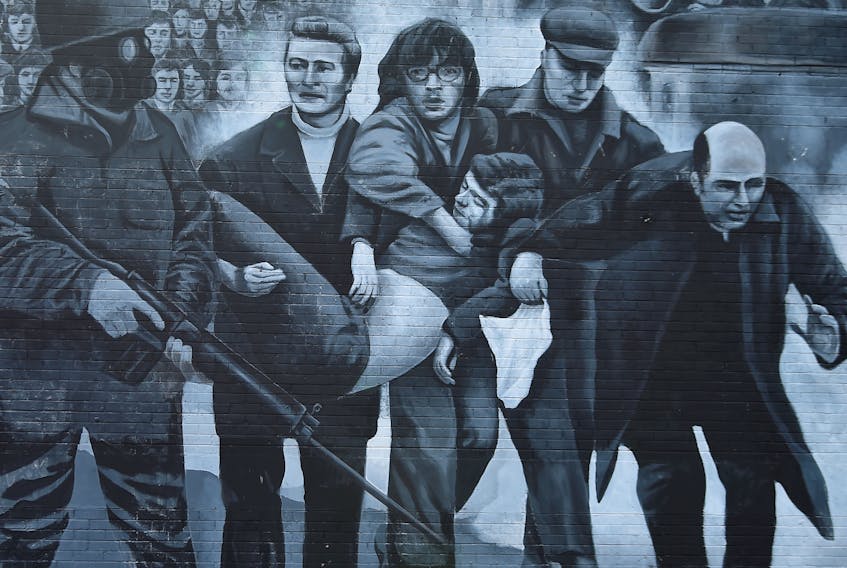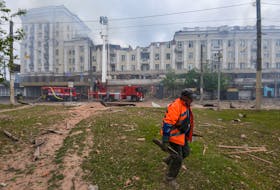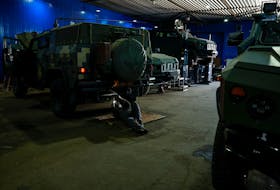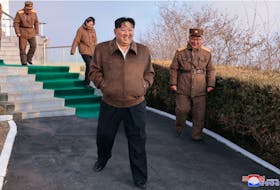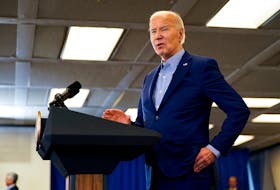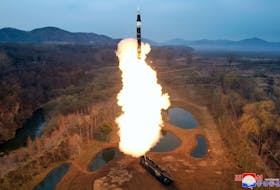By Amanda Ferguson
LONDONDERRY (Reuters) - Families of victims of the 1972 "Bloody Sunday" shootings in Northern Ireland are to ask prosecutors to strip the only British soldier facing prosecution of his anonymity, a lawyer said on the first day of a court hearing into the case.
Soldiers from the elite Parachute Regiment opened fire on Sunday, Jan. 30, 1972, during an unauthorized civil rights march in the Bogside nationalist area of Londonderry, in one of the most notorious incidents of the Northern Ireland conflict.
Thirteen people were killed and 14 wounded, one of whom died later.
Legal proceedings began in Londonderry Magistrates Court on Wednesday in the first prosecution against one of the soldiers, with the judge adjourning the case until Dec. 4, when a list of witnesses and the timing of their testimony will be discussed.
Evidence against 16 other former soldiers was insufficient, prosecutors said in March.
A lawyer for some of the families of the victims said they were not happy with the fact that the soldier, referred to in documents as "Soldier F" has been granted anonymity.
"We intend to make submissions to the public prosecution service that 'Soldier F' is prosecuted in a transparent manner as consistent with the majority of the prosecutions of soldiers in respect of the murder and attempted murder of Irish civilians here," Ciaran Shiels from Madden Finucane solicitors told journalists outside the court.
Bloody Sunday, which took place at the height of Northern Ireland's 30-year sectarian conflict, caused widespread anger at the time and nearly 50 years later the incident remains highly emotive.
A 2010 judicial inquiry into the events said the victims were innocent and had posed no threat to the military.
But supporters of the paratroopers say they were acting under extremely confused and stressful conditions, and it is unfair to pursue them so long after the event when many suspected Irish Republican Army (IRA) bombers and gunmen have been told they will no longer face arrest under the 1998 peace accords.
Soldier F, who did not attend Wednesday's hearing, is to be prosecuted for the murder of James Wray and William McKinney and for the attempted murders of Joseph Friel, Michael Quinn, Joe Mahon and Patrick O'Donnell and an unknown fifth person.
The British government is providing full legal support to the soldier who would be at least in his 60s.
"Today is historical," James Wray's brother Liam said of the first court hearing of the prosecution. "It should have taken place 47... years ago."
The 1998 Good Friday Agreement brought a close to a conflict in which about 3,500 people were killed. British troops subsequently withdrew from the province, but tensions still persist.
A car bomb exploded in January outside Londonderry courthouse where Wednesday's hearing took place, but no one was injured.
(Additional reporting by Conor Humphries, Editing by William Maclean)

